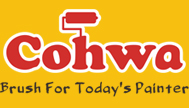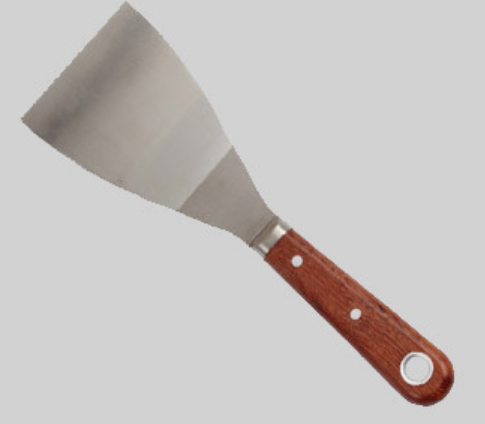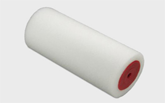What Is a Putty Knife Used For? Compare to Taping Knife
Jun. 15, 2024Putty knives (also commonly known as a joint knife) and taping knives look very similar – flat, relatively wide blades attached to a handle. So, what’s the difference? Are they interchangeable? Is a putty knife just a smaller taping knife? These are common questions, especially for anyone who’s new to home repair or has only used one type of knife or the other. While they can be used interchangeably for some specific tasks, they are quite different tools. Let’s take a look at how they differ from each other.
Intended Use
Putty knives are designed (surprise, surprise) for working with putty and more specifically for smoothly spreading putty into indentations and depressions. Taping knives, on the other hand, are designed specifically for scooping and spreading drywall mud onto seams and joints between panels.
A putty knife is stiffer than a joint knife. Similar to a taping knife, smaller putty knives work better in tight corners. You use the wider versions for large walls and ceilings. Putty knives are also more rigid than taping knives.
Size
Because of their intended uses, putty knives generally have smaller blades compared to taping knives. Putty knives typically range in size from 1.5” to 4”. In contrast, taping knives start at 6” and can be as large as 14”. Smaller taping knives are most useful for applying joint compound at the beginning of a project. As the project progresses, larger taping knives are used to spread and feather the drywall mud farther from the joint, creating a smooth transition from the seam to the surrounding surface.
Rigidity
Putty knives tend to be more rigid than taping knives. However, they offer a wider variety of rigidity. Some putty knives are designed for spreading and spackling, which are tasks similar to spreading joint compound and require a more flexible blade. Others are designed for scraping away old paint and thus need to be more rigid.
Taping knives, by contrast, are generally more flexible, which is crucial for achieving a smooth application of drywall joint compound. This flexibility makes them ideal for the specific tasks involved in drywall work and critical for ensuring a smooth, professional-looking finish. Although not designed for heavy scraping like some putty knives, taping knives can also remove small, uneven bits of dried joint compound. Additionally, thinner and more flexible taping knives are better suited for scraping away wallpaper compared to putty knives.
Interchangeability
There are instances where putty and taping knives can be used interchangeably, mainly when their functions overlap. For example, spreading putty over a large area might be quicker with a wider taping knife, which can save time. Similarly, a flexible putty knife can sometimes substitute for a taping knife when working in tight spaces where larger taping knives cannot fit. In situations where a taping knife is too large, a putty knife can also scrape away wallpaper in narrow spaces, such as the strip of wall between a window frame and the ceiling.
Conclusion
Putty and taping knives, though visually similar, are designed for distinct purposes. Putty knives are generally smaller, more rigid, and better suited for heavy scraping tasks. In contrast, drywall taping knives are usually wider, more flexible, and ideal for spreading, feathering, and performing more delicate scraping work. Despite these differences, they can occasionally be used interchangeably in specific situations, such as when using a putty knife for tight spaces where a taping knife is too large.
















